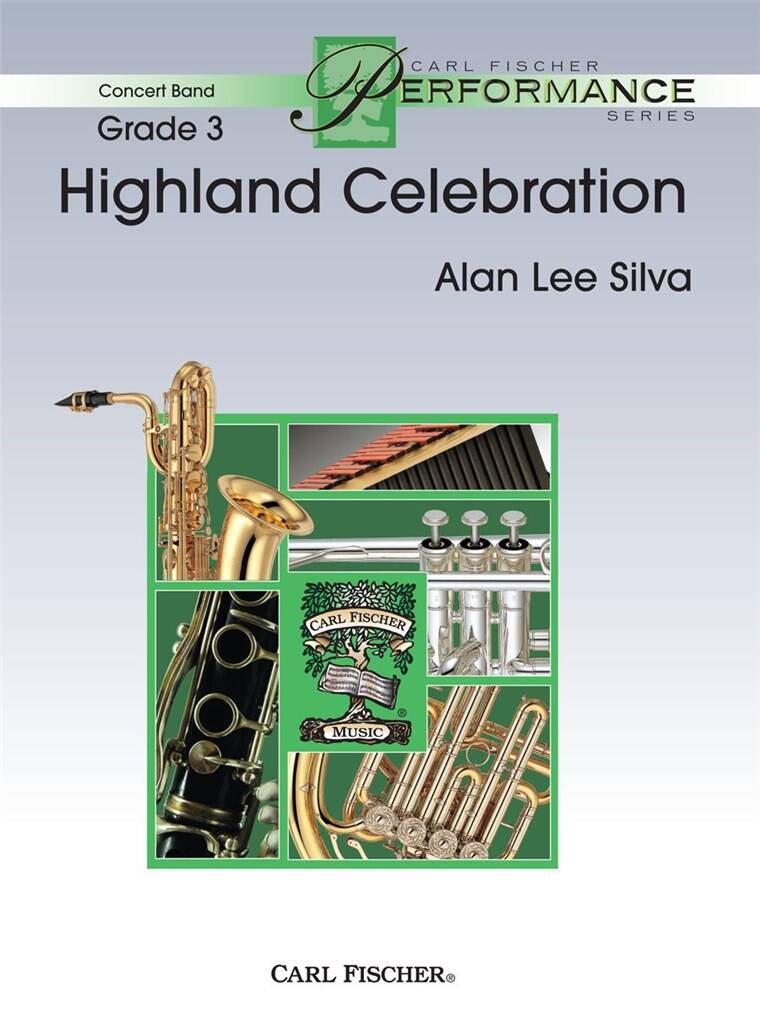Results
-
£89.95
Scenes From The Peconic - Carl Strommen
The natural beauty and historical significance of the Peconic River, a tranquil and majestic waterway originating in the pine barrens of eastern Long Island, are depicted in this colorful, flowing and tuneful new piece by Long Island resident Carl Strommen. The luminous scoring is designed to show the band to its best advantage. The 6/8 meter of most of the piece is ideal for representing the flow of the river's steady progress to the sea.
Estimated dispatch 7-14 working days
-
£106.95
Trilogy
Three distinct movements make up this dynamic new suite by composer Bill Calhoun. The first movement, "In Changing Times," is written in a fanfare style, contrasted by the ponderous second movement, "Lament," which leads to the joyous concluding movement, "The Final Journey." A multitude of styles, timbres, and textures show off the composer's eloquence with the modern concert band.
Estimated dispatch 7-14 working days
-
£95.95
Bom Dia (March)
Bom Dia (pronounced "Bom Gee-ahh") means "good morning" in Brazilian Portuguese. This cheerful piece uses the form of the Brazilian choro, with three melodies played in A-B-A-C-A order. An original march, Bom Dia was inspired by Andrew Balent's frequent trips to Brazil. This piece will serve as a welcome change this year for directors seeking a new warm-up march for a contest or festival.
Estimated dispatch 7-14 working days
-
£95.95
From This Valley - Gregory B. Rudgers
A fantasy on the folk song "Red River Valley," composer Gregory Rudgers's stunning new composition ranges from dramatic to lush and lyrical, accented by occasional, whimsical drifts. He employs all of the forces of the modern concert band to their fullest in this symphonic presentation. Ideal for a contest or festival.
Estimated dispatch 7-14 working days
-
 £106.95
£106.95Highland Celebration - Alan Lee Silva
Written with the lilt and flavor of the Scottish Highlands, this original Alan Lee Silva piece is a joyous new addition to the concert band repertoire. The pulsing 6/8 rhythms are contrasted by momentary feelings of 3/4, as the melody floats over punctuated harmonies. This piece contains contrast, with a slower middle section featuring a divine flute melody, accompanied by the sound of "bagpipe" drones in the other voices. This grand Scottishstyle melody develops to a climax before the wistful return of the main theme, and an up-tempo coda completes the piece.
Estimated dispatch 7-14 working days
-
£95.95
Twist Of Fate - Larry Clark
Musical twists and turns abound in this compositional departure for composer Larry Clark. It contains all of his impeccable scoring and attention to detail, but is a refreshing change in sound and technique for this adept composer. The piece is at times energetic, and at other times, lyrical. Elusive and ever-changing in harmonic structure and rhythmic content, it all adds up to an exceptional new piece by one of the most popular composers of band music today.
Estimated dispatch 7-14 working days
-
£101.50
Chanson for Christmas - Gregory B. Rudgers
A serious new composition based on the holiday classic Bring A Torch Jeannette Isabella. Composer Gregory Rudgers gives us a contest-style work that will serve the dual purpose offeroviding holiday concert material and presenting a solid piece of band literature on which to build your students' musicianship.
Estimated dispatch 7-14 working days
-
£95.95
Canonic Fantasy - Bill Calhoun
As the title implies, Canonic Fantasy is based on a harmonic canon that forms the basis for this excellent new concert band work. It begins slowly and dramatically and then weaves into a bold and dynamic allegro. Alert your contest list committee about this piece - it has all the makings of standard fare for contest/festival performance!
Estimated dispatch 7-14 working days
-
£95.95
Conquering Spirit - Ed Kiefer
An uplifiting new composition to open a concert program by composer Ed Kiefer. Brass fanfares and flourishes leading into multi-meter woodwind melodies make this a distinctive piece for your next performance.
Estimated dispatch 7-14 working days
-
£95.95
Encomium - George Sweet
Encomium, meaning a formal expression of praise, contains a fresh harmonic palette from new composer George Sweet. A contemporary fanfare for band, this two-minute piece is an ideal concert opener. Expect more great things from this gifted composer in the future.
Estimated dispatch 7-14 working days
